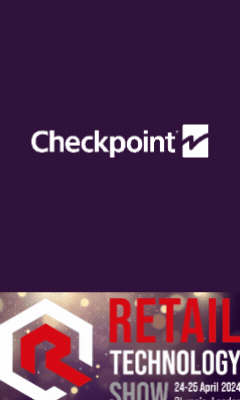Relex Supply Chain & Inventory Seminar
Growing amounts of data and the need to quickly move goods across channels is leading retailers to assess their supply chains and bring in new systems that give them greater visibility of stock and effective tools to better manage their inventory. By Glynn Davis
At the recent Relex Supply Chain & Inventory Seminar at the residence of the Ambassador of Finland in London’s Kensington, a number of retailers highlighted how they had recognised the need for supply chain change.
Andrew Rafferty, IT & e-commerce director at Booths, admits the company’s supply chain was a “poor relation” in the business with two separate systems – one for in-bound goods and one for store-based inventory.
The move to a new supply chain solution from Relex, which provides the ability to achieve a single view of stock, has predominantly been an exercise in making “life easier” for the supermarket’s supply chain team.
“It’s not been a revolution…We’ll continue to make marginal gains as we learn more about this complex tool,” he says, rather modestly as the gains to date have been notable. Spoilage of items in fresh cabinets has been cut by 20%, and 95% availability has been achieved (placing it in the top three for UK supermarkets).
Booths has effectively moved some of the mundane logistics activities to Relex thereby freeing up time to work more intelligently on promotions, which account for a third of sales at the supermarket.
It has been a similar scenario at JJ Food Service that has been using Relex for the last three years to help it take out some of the pain of running an increasingly complex business across multiple channels. Mushtaque Ahmed, chief operating officer at JJ Food Service, says: “The supply chain is 40-50% of our operational worries. It’s about box-shifting thousands of products to customers and between eight branch locations. It’s very cumbersome and that’s when you need tools like Relex. When you’re introducing new products and going into new markets then these tools are vital.”
By letting the solution handle all forecasting and replenishment is a great advantage for Ahmed as he says the company no longer has to deal with suppliers’ queries because the supply chain is handled much more efficiently and so less problems and delays occur when moving goods. “All the headaches have gone, it’s been deskilled. Forecasting is the least of the things we now have to deal with. My biggest advantage now is the solution’s analytics,” he says.
The analytics capability of Relex is significantly enhanced by its use of in-memory computing that enables large data sets to be easily handled and be able to have the flexibility to make “on the fly” changes to the calculations being made.
Mikko Kärkkäinen, group CEO of Relex, says retailers have typically run their store replenishment, warehouse management, and sales & operations management systems, along with their supply chain optimisation tools all completely separately. But with in-memory computing he says calculations can be undertaken on all these systems combined.
The complexity involved has made the Relex solution even more compelling for Rafferty and Vicky Kay, head of commercial operations and supply at Ao.com, who says that despite the company usually building solutions in-house it has made an exception with Relex.
“We’re in-house developers typically because we’re worried about buying software as we’d potentially lose control. Other supply chain vendors just showed us how we could use their solution to get quicker reports whereas Relex gave us autonomy and flexibility, which has helped us when going into new categories and countries,” she explains.
Kay also highlights the advantage of Relex being a Saas (Software as a Service) solution that avoids the need for large up-front fees and a regular licence fee: “There are always additional costs at different stages, but with Relex there is a real sound cost base.”
Another advantage she found was the ability to enjoy benefits from the solution when only having modest amounts of master data held within the Ao.com business. “You do not need 10 years of data. We’ve learnt that you can have only small amounts – we had only one year of data – and Relex will still work with what you’ve got,” she says.
John Power, supply chain manager at Wyevale Garden Centre, says master data is a major challenge for his company but even with its “poor quality” data he says they have been able to benefit from Relex’s analytics capabilities to identity trends and exceptions to a sufficient level that “it has given us the traction to improve our master data at a faster rate, which will help us evolve and improve the results further”.
Kärkkäinen adds that all companies have some problems with their master data and that this is not a big issue because “you can always do something initially with it” to derive analytical benefits for the business.














